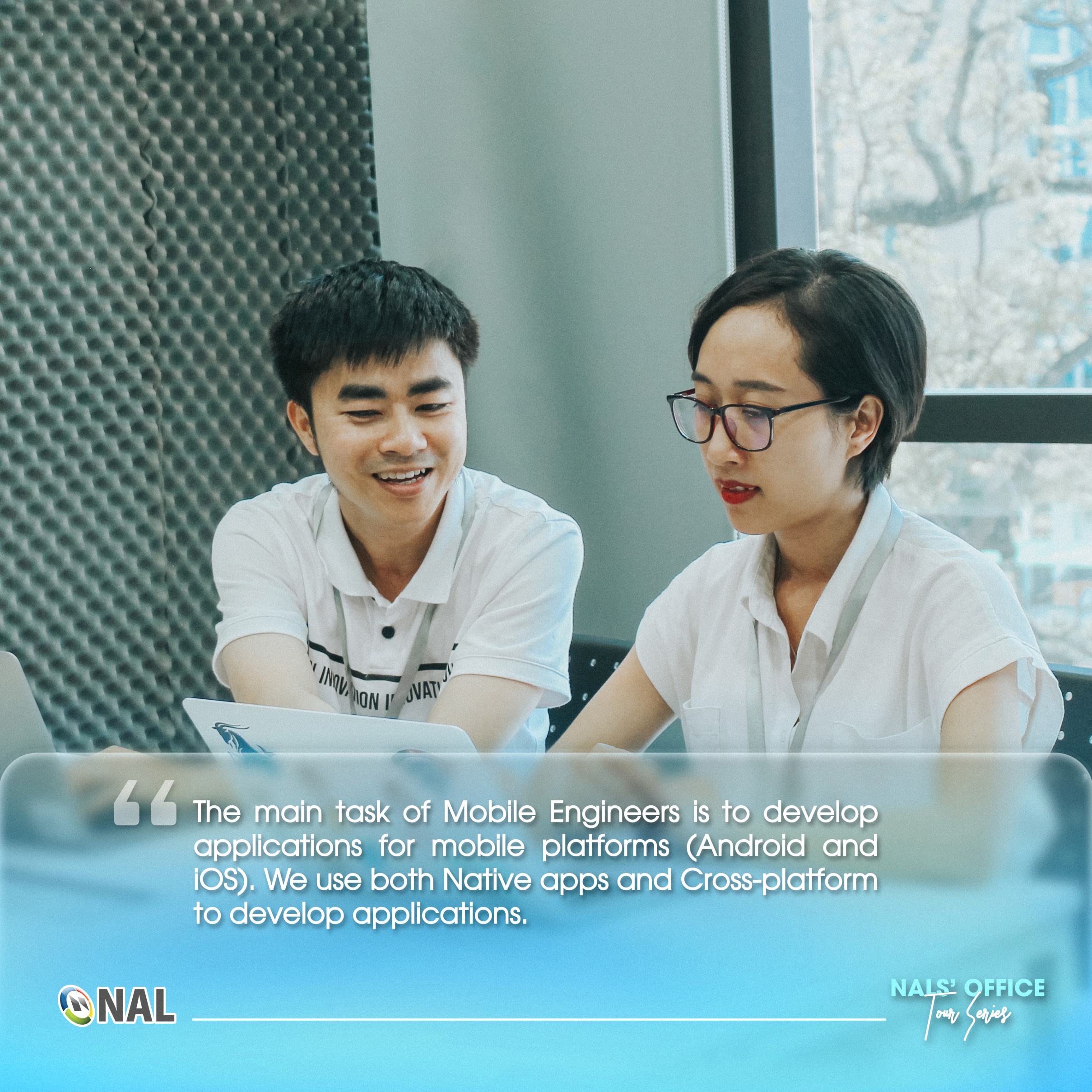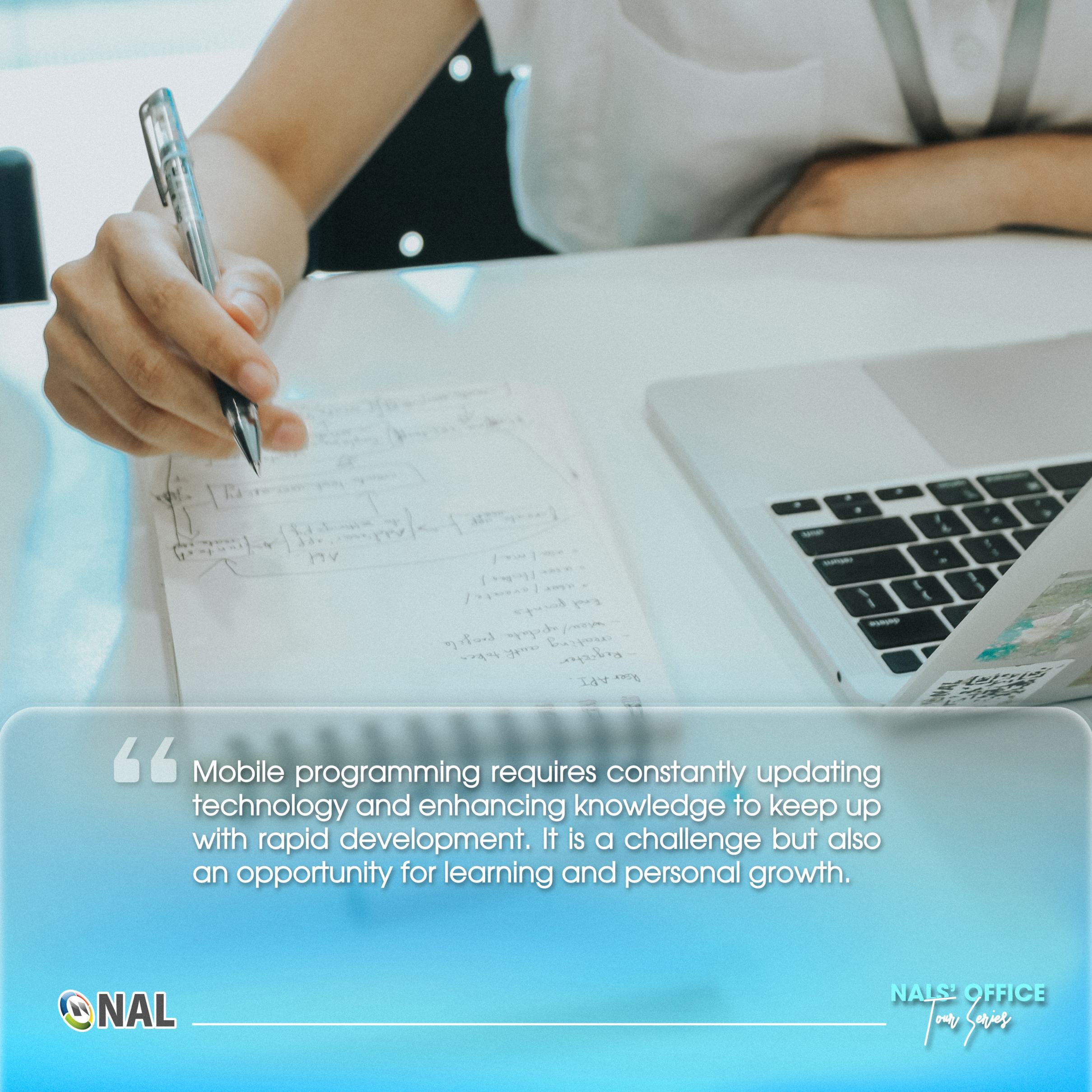Roles of a Mobile Engineer:
A Mobile Engineer assumes a multifaceted role that encompasses a range of responsibilities. At the core of their duties is the development of mobile applications for Android and iOS platforms. Collaborating closely with designers, product managers, and other stakeholders, they transform requirements into functional and visually appealing mobile apps. Additionally, Mobile Engineers conduct thorough research to stay up-to-date with the latest technologies, frameworks, and tools, ensuring they make informed decisions when selecting the most suitable technologies for their projects. They also play a vital role in upgrading and maintaining existing features of mobile applications, incorporating user feedback and resolving issues to enhance functionality and performance. Collaboration and effective communication skills are essential as Mobile Engineers work alongside cross-functional teams, seamlessly integrating various components of the application.
Performance optimization is another crucial aspect of their role, where they analyze and enhance factors like app responsiveness, load times, memory usage, and battery consumption. Moreover, Mobile Engineers engage in testing and quality assurance activities to identify and rectify bugs, conduct thorough testing, and ensure the reliability and robustness of the applications. In a fast-paced industry, continuous learning is paramount for Mobile Engineers, who actively seek new knowledge, attend conferences, and engage in online forums to stay updated with industry trends and advancements. Overall, Mobile Engineers play a vital role in developing and maintaining high-quality mobile applications, combining technical expertise, collaboration, and a commitment to staying at the forefront of mobile programming.
To become a successful Mobile Engineer, you will need:
Strong Programming Skills: A solid foundation in programming languages such as Java, Kotlin (for Android) and Swift (for iOS) is crucial for Mobile Engineers. Proficiency in these languages allows them to develop robust and efficient mobile applications.
Knowledge of Mobile Platforms: Mobile Engineers should have a deep understanding of the Android and iOS platforms, including their respective frameworks, APIs, and guidelines. This knowledge enables them to leverage platform-specific features and design applications that meet platform standards.
UI/UX knowledge: A good grasp of user interface (UI) and user experience (UX) design principles is vital for Mobile Engineers. They should be able to create visually appealing and intuitive mobile interfaces that provide a seamless user experience.
Adaptability and Learning Agility: The mobile industry is constantly evolving, with new technologies and frameworks emerging regularly. Successful Mobile Engineers are adaptable and demonstrate a willingness to learn and adapt to new tools and techniques.
Collaboration and Communication Skills: Mobile Engineers often work in teams, collaborating with designers, product managers, and other developers. Practical communication skills are vital to understanding requirements, sharing progress updates, and working together seamlessly.
Attention to Detail: Mobile applications require meticulous attention to detail, especially when it comes to user interfaces, performance optimization, and bug fixing. Paying close attention to small details helps ensure high-quality and polished mobile apps.
Passion and Drive: Finally, a passion for mobile technology and a strong drive to create exceptional mobile experiences are key attributes of a successful Mobile Engineer. A genuine interest in the field will fuel motivation and inspire continuous improvement.
Mobile Engineer Career Path and Opportunities:
A career as a Mobile Engineer offers various paths for growth and opportunities. Here are some common career trajectories and potential opportunities for Mobile Engineers:
Junior Mobile Engineer: Starting as a Junior Mobile Engineer, you will gain practical experience and build a foundation in mobile development. You will work on smaller projects, collaborating with senior engineers and learning from their expertise.
Mobile Developer: As you gain experience and proficiency in mobile development, you can progress to the role of a Mobile Developer. In this position, you will have increased responsibilities in developing and maintaining mobile applications, taking ownership of projects, and working more independently.
Senior Mobile Engineer: With several years of experience, you can advance to the role of a Senior Mobile Engineer. As a senior, you will be responsible for leading and mentoring junior engineers, providing technical guidance, and contributing to architectural decisions. You will also take on more complex and challenging projects, working on the cutting edge of mobile technology.
Technical Lead or Engineering Manager: As you progress in your career, you may choose to transition into leadership roles. Technical Lead or Engineering Manager positions involve overseeing a team of Mobile Engineers, providing guidance, setting technical standards, and managing project timelines and deliverables. These roles require not only technical expertise but also strong leadership and communication skills.
Research and Development: Mobile Engineers passionate about exploring new technologies and pushing the boundaries of mobile development can pursue research and development roles. These positions involve investigating emerging technologies, contributing to industry advancements, and potentially working in academic or corporate research labs.
Specialization in Emerging Technologies: Mobile technology continues to evolve rapidly, and opportunities for specialization in areas like augmented reality (AR), virtual reality (VR), machine learning (ML), and Internet of Things (IoT) are abundant. By focusing on these emerging technologies, Mobile Engineers can position themselves at the forefront of innovation and unlock new career avenues.
Success Story of Mobile Engineer at NAL Solutions:
This success story revolves around the journey of L.V. Vu, a Mobile Engineer at NAL Solutions, and his colleagues, who have been instrumental in shaping the fascinating smartphone world. At NALS, their Android and iOS Engineers take on the exciting challenge of building, designing, and developing applications for these platforms. However, their responsibilities go beyond just creating new applications. These talented professionals are also tasked with staying abreast of the latest technologies, researching advancements, and enhancing existing mobile device features to meet the ever-evolving customer requirements.
For L.V. Vu, mobile programming is a journey of continuous self-improvement and staying up-to-date with emerging trends. It presents both challenges and opportunities for personal growth and learning. Working in a field he is passionate about, within a professional environment surrounded by supportive and collaborative colleagues, serves as daily motivation for Mr. Vu and his teammates.
While technical and research skills are essential for Mobile Engineers, there are other crucial abilities that contribute to their success. Skills like effective presentation, be it through sharing knowledge, conducting training sessions, or writing technology blogs, enhance critical thinking and proactiveness in their work. Additionally, proficiency in English plays a pivotal role in application development and enables seamless communication with partners and customers.
Read related article: Get to know the UI/UX Designer role at NAL Solutions


